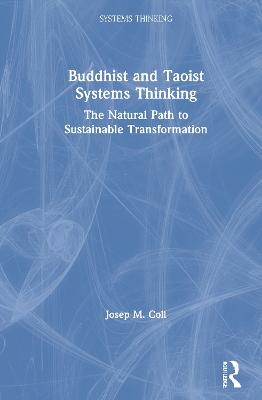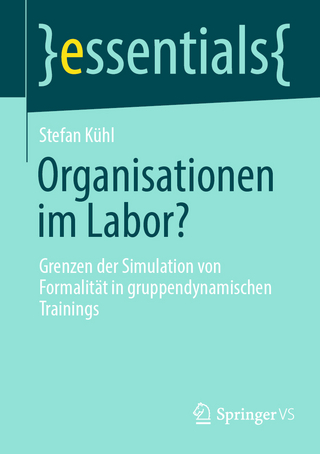
Buddhist and Taoist Systems Thinking
Routledge (Verlag)
978-1-032-00972-8 (ISBN)
Buddhist and Taoist Systems Thinking explores a radical new conception of business and management. It is grounded on the reconnection of humans with nature as the new competitive advantage for living organizations and entrepreneurs that aspire to regenerate the economy and drive a positive impact on the planet, in the context of the Anthropocene. Organizations today struggle in finding a balance between maximizing profits and generating value for their stakeholders, the environment and the society at large. This happens in a paradigm shift characterized by unprecedented levels of exponential change and the emergence of disruptive technologies. Adaptability, thus, is becoming the new business imperative. How can, then, entrepreneurs and organizations constantly adapt and, at the same time, design the sustainable futures they’d like?
This book uniquely explores the benefits of applying Buddhist and Taoist Systems Thinking to sustainable management. Grounded in Taoist and Zen Buddhist philosophies, it offers a modern scientific perspective fundamentally based on the concepts of bio-logical adaptability and lifefulness amidst complexity and constant change. The book introduces the new concept of the Gaia organization as a living organism that consciously helps perpetuate the conditions for life on the planet. It is subject to the natural laws of transformation and the principles of oneness, emptiness, impermanence, balance, self-regulation and harmonization. Readers will find applied Eastern systems theories such as the Yin-Yang and the Five Elements operationalized through practical methodologies and tools such as T-Qualia and the Zen Business model. They are aimed at guiding Gaia organizations and entrepreneurs in leading sustainable transformations and qualifying economic growth.
The book offers a vital toolkit for purpose-driven practitioners, management researchers, students, social entrepreneurs, evaluators and change-makers to reinvent, create and mindfully manage sustainable and agile organizations that drive systemic transformation.
Josep M. Coll is a professor of Strategy, Sustainability and Innovation at EADA Business School, visiting professor at Yonsei University in South Korea, and research associate at Maastricht School of Management. He works as an independent consultant for a wide range of private and public organizations, such as the European Commission and the United Nations. In the United Nations system, he co-led the first corporate developmental evaluation and adaptive management movement in UNFPA. As an initiate in Taoist metaphysics and Zen practitioner, he applies East Asian perennial philosophies into practical systems approaches and methods for regeneration. He regularly speaks internationally on systems leadership and sustainable transformation and coaches organizations, managers and entrepreneurs in transitioning to the new sustainable, regenerative and inclusive business paradigm.
Introduction: the consciousness gap 1. The emergence of the new business paradigm: from the ego-system to the eco-system 2. TAO 4.0: adaptive thinking amidst exponential change and complexity 3. The quest for balance and harmony: the Yin–Yang and the Five Elements 4. T-Qualia, a bio-logic of learning for transformation: the Eastern systems approach to the process of knowing 5. The Zen Business model: from metaphysics to sustainable management 6. Building the Gaia organization: principles and practices 7. Designing the Gaia startup: practical guidelines 8. Managing abundance beyond the triple bottom line 9. Business mindfulness: evaluation for systems transformation
| Erscheinungsdatum | 15.07.2021 |
|---|---|
| Reihe/Serie | Systems Thinking |
| Zusatzinfo | 2 Tables, black and white; 30 Line drawings, black and white; 30 Illustrations, black and white |
| Verlagsort | London |
| Sprache | englisch |
| Maße | 156 x 234 mm |
| Gewicht | 439 g |
| Themenwelt | Sozialwissenschaften ► Soziologie ► Spezielle Soziologien |
| Wirtschaft ► Betriebswirtschaft / Management ► Unternehmensführung / Management | |
| ISBN-10 | 1-032-00972-1 / 1032009721 |
| ISBN-13 | 978-1-032-00972-8 / 9781032009728 |
| Zustand | Neuware |
| Haben Sie eine Frage zum Produkt? |
aus dem Bereich


